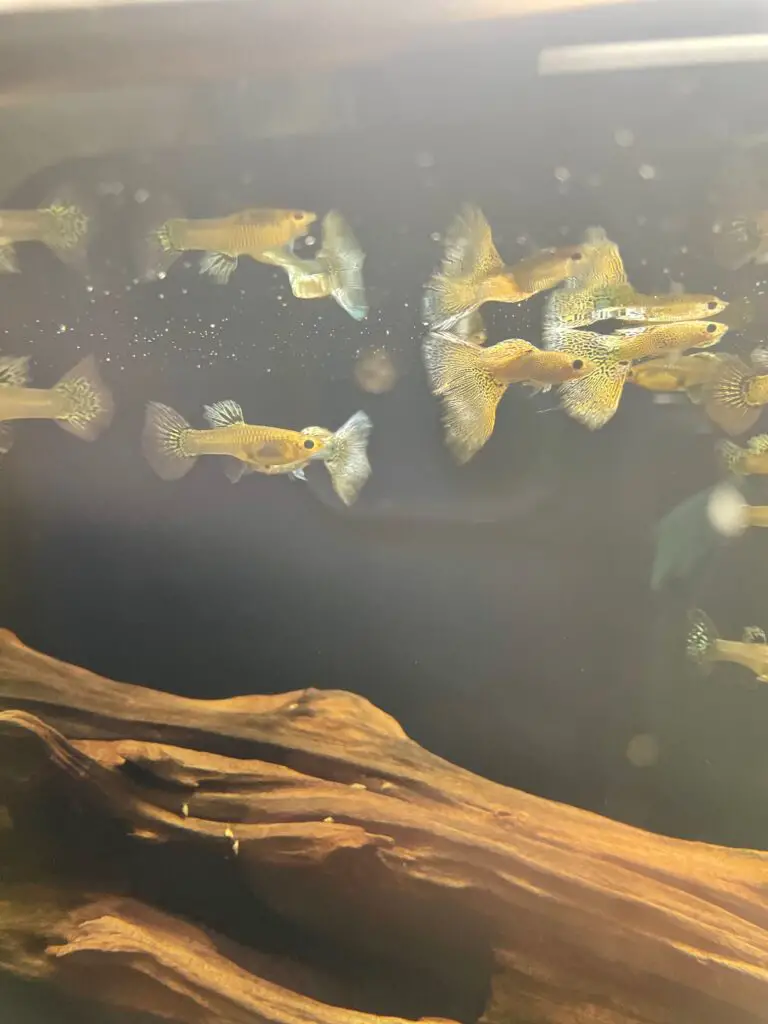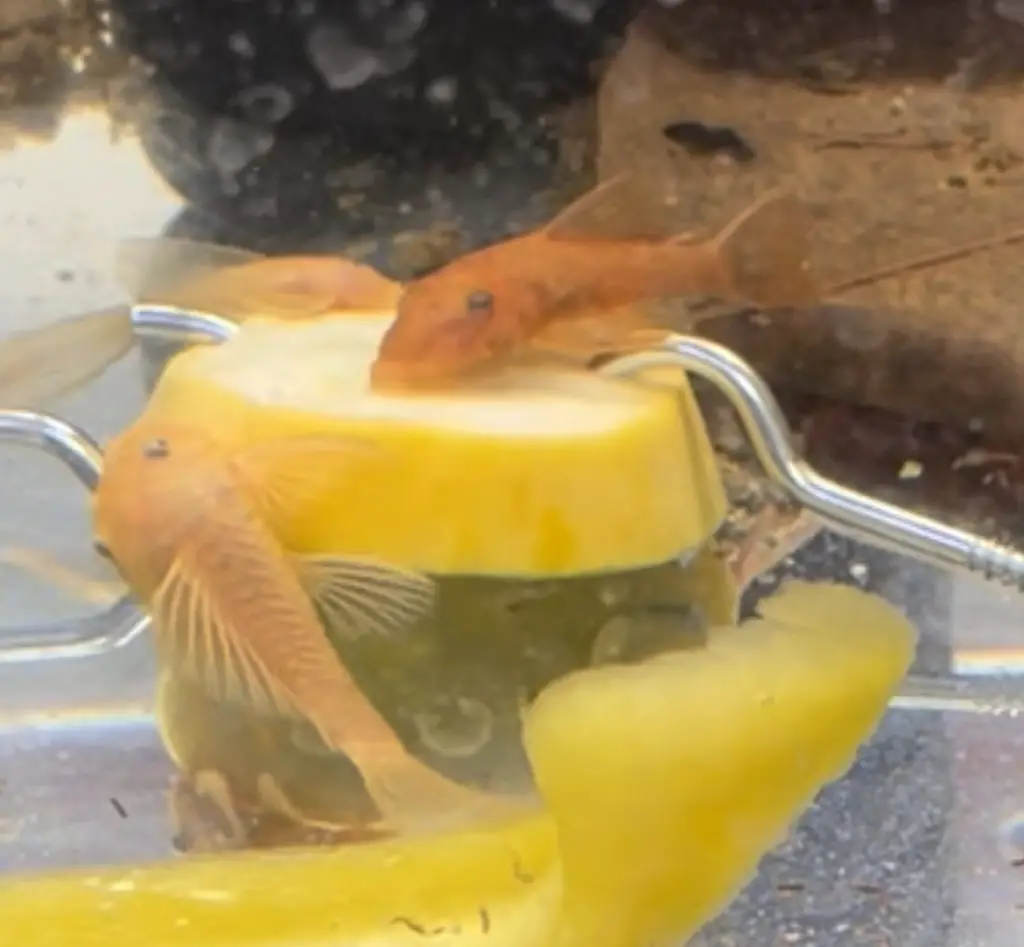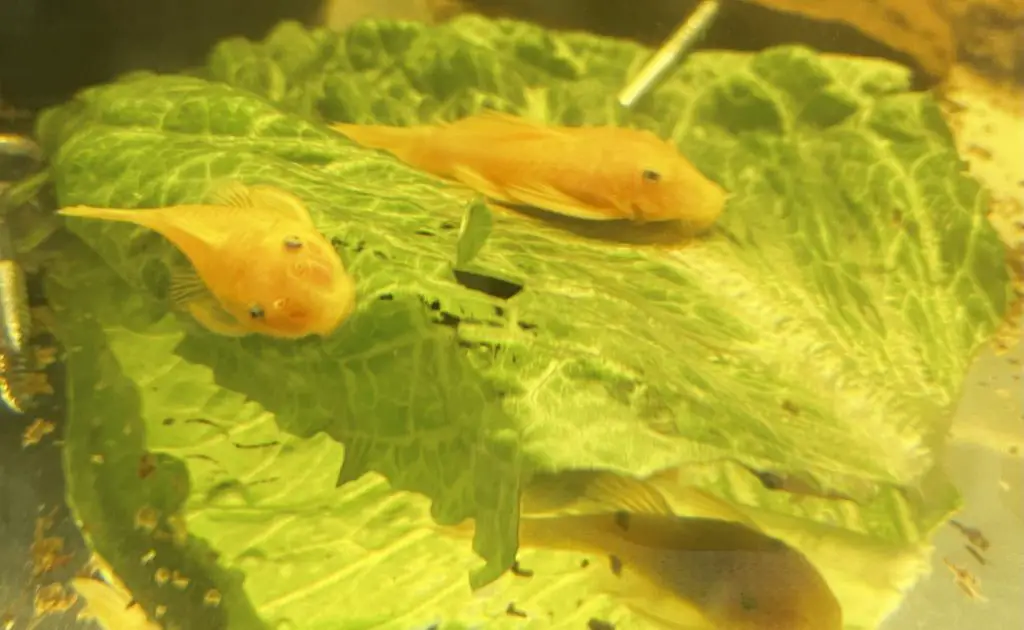If you have had fish or aquariums for any amount of time the idea to have an outdoor pond has crossed your mind. Then what fish is best to keep in this outdoor pond? I suggest starting with guppies. They are a great starter fish for a pond.
I like suggesting starting with guppies for your first outdoor pond because they are an extremely hardy fish that you can find in any pet store at a cheap price.
This makes it great because if you make any mistakes you can replace them easily and your mistake did cost you very much.
I also love having guppies in a pond because there are so many different types and colors. You can have a super unique pond on a budget. Unlike having a koi or goldfish pond where depending on the type they can be very expensive.
The idea of having another location where you can keep fish is super exciting. My wife is awesome and lets me have tons of tanks in our house but we have hit the limit of how many I can fit in our house. So expanding outside is a great option.
I will only be talking about small ponds that will fit in most people’s backyards. I am not talking about large ponds that take up more area than a small pool.
Large ponds have different requirements and care than small ponds do so I will focus on small ponds to provide more relevant information.
Table of Contents
Do you need to feed guppies in a pond?

Yes please feed your guppies in your pond. They need it. Just because they are outside doesn’t mean they magically have access to food. In the wild, they can get plenty of food because there are bugs and other organisms they can feed on but in your backyard, there are way fewer bugs and creatures they can eat.
So feed your guppies they will be happier, prettier, and have more babies if you feed them.
Are water changes necessary in a pond?
Yes, you do need to do water changes on your guppy pond. Just like your aquarium, you will need to do some sort of water change.
Most residential ponds are a closed system so the water is just recycled and moved inside the pond using a water pump or air pump.
Doing water changes has several benefits. The first is that it will keep your water clearer. Fungus and algae that live in your water feed off of the waste of your guppies and other fish products in your pond.
Having ammonia, nitrites, and nitrates in your water is one of the biggest killers of fish. These are all caused by poop, decaying matter, and uneaten food in your pond.
Luckily high ammonia, nitrites, and nitrates are really easy to treat or fix. The quickest way to fix it is by doing a water change. I would take out 25-50% at a time and do it a few times a month a week or two apart.
One thing that will make it so the ammonia, nitrites, and nitrates build up slower is to get the pond cycled. Cycling a tank or pond is where you get beneficial bacteria established in the tank that breaks down ammonia from nitrites to nitrates.
This cycle turns ammonia (which is most harmful to your guppies) to nitrites (less harmful) to (the least harmful) nitrates.
When this cycle is established you can go a little longer between water changes.
Just like how chlorine is harmful to humans it is also harmful to your fish so if there is chlorine or other chemicals used to treat your water I would suggest using a de-chlorinator to treat your tap water or water from your house.
If you don’t like using dechlorination on your water you can also let your water cure by letting it sit for 24-48 hours with some water movement to get the chlorine to evaporate out of your water.
One large benefit of doing water changes on your pond is that you can use it to water your plants or grass and because of the waste the fish have put off it fertilizes your plants and grass at the same time. So win win.
Will guppies survive winter in a pond?
It greatly depends on how cold your winter gets. Winter in California or Florida is completely different from Utah or Minnesota.
Guppies can’t survive in cold water. Guppies are tropical fish so they like the water temperature of 72-80 degrees. They prefer 75 or above and can tolerate dips into the 60s but long prolonged periods of 60s will affect the health of our guppies.
So in the spring and fall, I would keep an eye on the weather. Wait to put your guppies out in your pond tell you have had a few weeks of above 60 degree weather and bring your guppies into a heated tank in the fall when the weather dips into the low 60s on a consistent basis.
How hot is too hot for guppies?
Even though guppies are a tropical fish they do have a limit on how hot they can handle. Guppies can live in water in the low 80s but they can handle brief peaks of 90 degree temperature.
This is why I would suggest that you keep your pond out of direct sunlight so it doesn’t overheat.
Flower pot pond idea
One idea that my family tried out this year that was fun was doing a flower pot pond. It’s where you take a large flower pot or planter and turn it into a pond.
It is fun because they fit almost anywhere and are cheap to make. All you need is a pot, fish, and water.
I would suggest adding plants like water lettuce or lily pads to give it that pond feel. Adding rocks or small pebbles will also make it look more natural. There are so many ways you could aquascape it and because it is small it is much more affordable.
All in all having a guppy pond in your yard, balcony, or porch is an excellent idea. Just make sure to care for them like you would a fish tank and watch the temperature during the spring and fall. Have fun adding your guppies and watching them grow and flourish.

